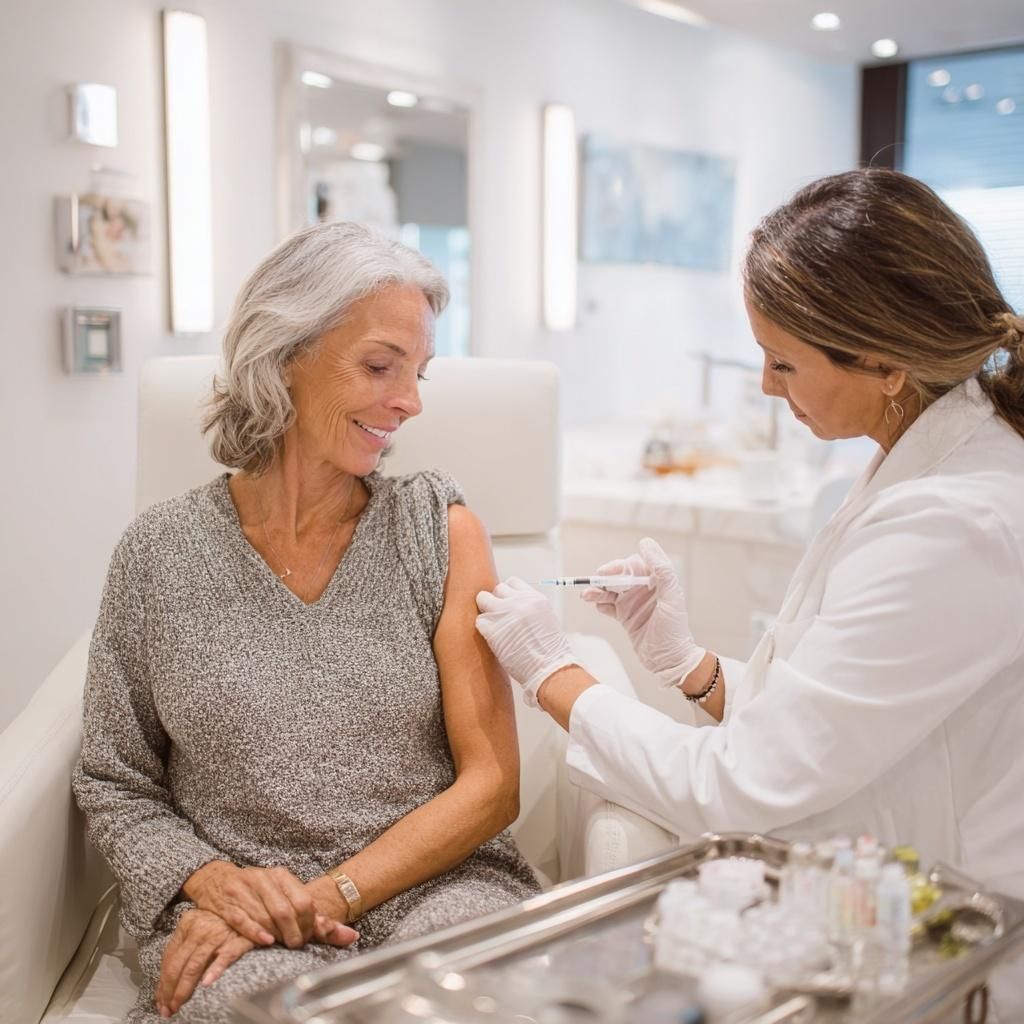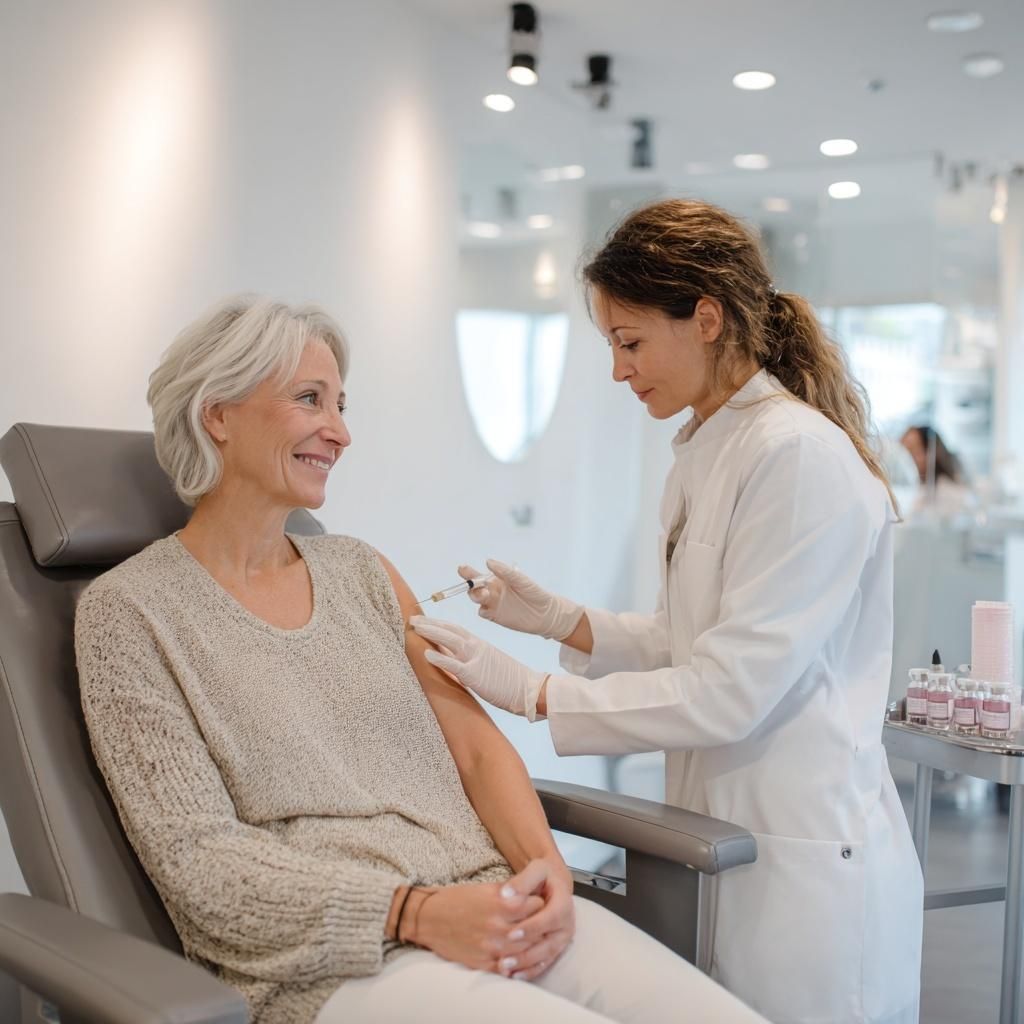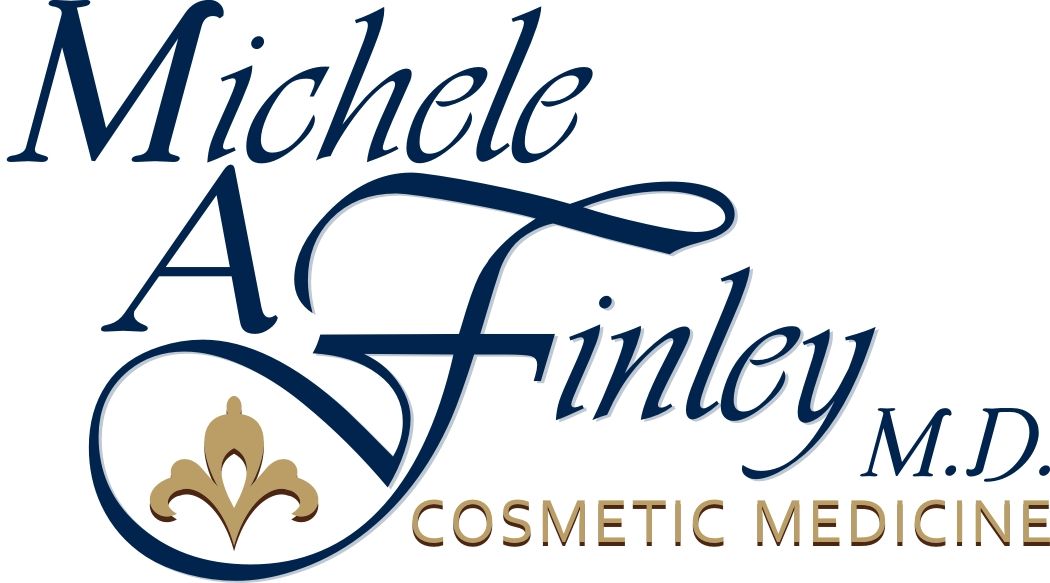
You wake up sweating at 3 a.m. and can’t fall back asleep. Later in the day, you snap at someone for no reason and feel guilty afterward. Hot flashes, mood swings, and constant fatigue make you feel like your body is working against you.
This is how menopause shows up for many women in Carmel, IN, usually in their late 40s to early 50s.
Menopause symptoms are not just an inconvenience. They can affect your work, relationships, and confidence. When hormone levels drop, everything feels out of balance, and it can seem like you’ve aged overnight.
This is where hormone replacement therapy (HRT) comes in. By restoring estrogen and progesterone, HRT can ease symptoms, protect your long-term health, and help you feel younger again. At Michele Finley MD Cosmetic Medicine, we focus on personalized hormone therapies that make a real difference in your daily life.
Understanding Menopause and Hormonal Changes
Menopause is the natural point in life when your ovaries stop releasing eggs and produce much less estrogen and progesterone. The average age of menopause is around 51, but it can happen earlier or later depending on your health and genetics.
What Happens During Menopause?
When hormone levels drop, you may notice symptoms like:
- Hot flashes and night sweats
- Sleep problems
- Mood changes and irritability
- Vaginal dryness and discomfort
- Memory fog or trouble focusing
- Bone loss that raises the risk of osteoporosis
These changes don’t happen overnight. They start during perimenopause and can last for years. For some women, the symptoms are mild. For others, they’re so disruptive that it feels impossible to get through the day.
Why Hormonal Shifts Matter
Low estrogen affects more than just your menstrual cycle. It impacts your bones, your heart, your brain, and even your skin. Estrogen therapy may help stabilize many of these changes, but it requires medical guidance because the benefits and risks of HRT depend on your age, health, and personal history (North American Menopause Society).
What Is Hormone Replacement Therapy (HRT)?

Hormone replacement therapy is a treatment that replaces declining hormones with supplemental estrogen and sometimes progesterone. This therapy for women is often recommended to treat menopause symptoms like hot flashes, vaginal dryness, and night sweats.
Why Personalization Matters
HRT is not one-size-fits-all. Factors like whether you’ve had a hysterectomy, your family history of breast cancer, or your risk of stroke all play a role in which types of hormone therapy are safe for you. The North American Menopause Society 2022 position statement stresses that therapy should always be personalized to reduce risks while improving quality of life.
Benefits of Hormone Therapy for Women
Let’s take a closer look at the key benefits of hormone therapy, starting with symptom relief.
Symptom Relief
HRT is the most effective treatment for hot flashes, night sweats, and vaginal dryness. Relief often starts within weeks, and many women report feeling like themselves again within 3 months.
Better Mood and Energy
Low hormone levels can make you irritable, tired, and more prone to depression. Hormone therapy may improve mood stability, reduce fatigue, and help restore mental sharpness.
Bone and Heart Health
Estrogen therapy helps reduce the risk of bone loss and osteoporosis-related fractures. Some research also shows it may support cardiovascular health by helping maintain healthy cholesterol levels.
Sexual Health and Confidence
By improving vaginal dryness and discomfort, HRT can make intimacy easier and more enjoyable. This often leads to stronger relationships and a better sense of confidence.
Types of Hormone Replacement Therapy and Delivery Options
Not all hormone therapies are the same. Here are the main differences:
| Type of Therapy | Who It’s For | How It Works | Risks/Considerations |
|---|---|---|---|
| Estrogen-only therapy | Women who’ve had a hysterectomy | Replaces estrogen only | Increases risk of stroke and blood clot if not monitored |
| Combined hormone therapy (estrogen + progestogen) | Women with a uterus | Protects against uterine cancer | May increase the risk of breast cancer with long-term use |
| Systemic therapy (tablets, patches, gels) | Women with widespread symptoms | Hormones circulate throughout the body | Different risks depending on dose of estrogen and delivery method |
| Local estrogen therapy (vaginal creams, tablets, rings) | Women with vaginal dryness only | Minimal absorption outside vaginal tissue | Lower risk compared to systemic therapy |
Different types of estrogen therapy also exist. Some women do better on patches, while others prefer tablets. The choice depends on your health, preferences, and how your body responds.
The Hormone Therapy Process: What to Expect

Step One: Consultation
Your treatment begins with a thorough consultation. Blood work may be done to check hormone levels, and your medical history is reviewed to ensure HRT is safe for you.
Step Two: Personalized Plan
If you’re a candidate, Dr. Finley will recommend the right type of hormone therapy for you; estrogen-only therapy, combined therapy, or local estrogen therapy. The treatment plan includes the delivery method (such as HRT tablets, patches, or gels) and the correct dose of estrogen.
Step Three: Adjustment and Monitoring
It usually takes a few weeks to notice changes. Most women feel full benefits after 3 months. Regular follow-ups make sure the therapy continues to work and stays safe.
Step Four: Review and Future Planning
Hormone therapy is not lifelong for most women. The risks and benefits of HRT are reviewed every year, and treatment is usually continued for as long as the benefits outweigh the risks.
Safety and Risks of Hormone Therapy
Hormone therapy may increase the risk of certain conditions if used incorrectly or for too long. The risks of HRT include a slightly increased risk of breast cancer, blood clot, stroke, or ovarian cancer with long-term combined therapy.
Risk Factors That Matter
- Starting HRT within 10 years of menopause tends to have a better safety profile.
- Women over 60 who continue hormone therapy for many years may face increased risks.
- Type of estrogen, dose of estrogen, and delivery method (systemic therapy vs. local therapy) all influence outcomes.
Balancing Benefits and Risks
For many women, the benefits of HRT (relief from symptoms, lower risk of bone loss, improved daily life) outweigh the risks when carefully managed by a doctor.
Personalized Care at Michele Finley MD Cosmetic Medicine

Dr. Michele Finley combines years of internal medicine experience with women’s health expertise. Every treatment is customized, with careful attention to your unique medical history and personal goals. At her Carmel, IN clinic, hormone replacement therapy for women is never generic. It’s always safe, thoughtful, and tailored to help you feel younger again.
Frequently Asked Questions
1. How long before hormone therapy works?
Most women notice improvement in symptoms like hot flashes within a few weeks. Full benefits are usually felt after about 3 months.
2. What types of hormone therapy are safest?
Local estrogen therapy has the lowest risks because it mainly treats vaginal dryness without circulating through the whole body. Systemic therapy, like tablets or patches, has broader benefits but requires careful monitoring.
3. Can I take HRT if I had a hysterectomy?
Yes. Women who’ve had a hysterectomy usually only need estrogen therapy, which avoids the added risk of uterine cancer from unopposed estrogen.
4. Will hormone therapy cause weight gain?
Some women experience mild bloating at the start, but research hasn’t shown HRT to cause long-term weight gain. Maintaining a healthy diet and regular activity remains the best way to control weight.
Conclusion: Reclaim Balance and Confidence
Menopause doesn’t have to mean losing energy, sleep, and joy in daily life. With the right hormone therapy for menopause, you can reduce hot flashes, protect your bones, and feel more like yourself again.
At Michele Finley MD Cosmetic Medicine in Carmel, IN, you’ll find personalized treatment options, honest conversations about the risks and benefits of HRT, and a doctor who puts your safety first. Schedule a consultation today and take the first step toward restoring balance and confidence.

Dr. Michele Finley
Meet Michele Finley, MD, a renowned expert in cosmetic treatments, dedicated to enhancing your beauty and confidence with personalized care and precision.

